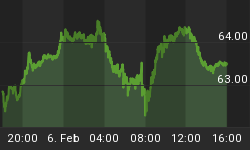As the year draws to a close, understandable confusion reigns in the minds of many investors. While short-term indicators, such as consumer confidence, appear to beckon recovery, the longer-term strategic issues remain shrouded in the smoke and mirrors of central bank monetary manipulation. From the perspective of someone who has keenly observed global economics for more than a half century, I see little reason to believe that our economic morass will soon improve. Indeed, I do not believe we will see meaningful change until the Bretton Woods era of U.S. dollar dominated paper money finally comes to an end. In other words, our current experiment in unlimited monetary expansion will continue until it explodes.
In the meantime, there is holiday spending to cheer us. From early reports, it appears that consumer spending in November and December was stronger than most forecasters had predicted. Politicians and bankers moved mountains to make this spending possible. Endless unemployment benefits, payroll tax holidays, and the lowest mortgage rates in history have allowed Americans to keep spending even as their economic outlook deteriorates. In addition, people who have defaulted on their mortgages and maintenance charges find their monthly cash flows increased by hundreds, if not thousands of dollars. Depressed and frustrated by the hardships of recession, this extra cash has been spent largely on consumer goods such as autos, home improvement, and electronics. But it is important to recognize that these positive sources of funds are simply debits against the accounts of others. In particular taxpayers who will bear the burden of an ever escalating deficit.
American and European Union politicians have shown utter paralysis in tackling intractable economic problems. Unwilling to make the tough decisions they all know should be enacted to avoid a looming global economic disaster, they have endlessly kicked the can down the road, while assuming that the road will go on forever. With an estimated $6 trillion plus solvency shortfall of the Eurozone banks and $16 trillion in U.S. public debt, it will take leadership of far greater caliber to avert a disaster. Such leadership is nowhere to be seen.
Despite the massive injections of public funds, banks are clearly not lending to small businesses, the vital source of economic recovery. Indeed, the vast government borrowings are 'crowding' private corporations out of funds available for lending. In essence, this cycling of funds, from the governments, to the banks, and back to the governments, has created profits for the few while offering no wider economic benefit. In the meantime the euro, as the world's second currency, is in increasing danger of collapse. The euro is so shrouded in doubt that investors are fleeing to the U.S. dollar and U.S. Treasuries as a safe haven. This demand has created an illogical rally in the U.S. dollar and Treasuries even as the major ratings agencies have telegraphed additional downgrades of U.S. government debt.
Unless major structural changes in fiscal policies are combined with sustained economic improvements, there is a significant likelihood that the euro will disintegrate in the coming years. As the world's second currency, its demise would herald unprecedented bank runs and financial chaos. Following an initial rise, the U.S. dollar may face widespread pressure as investors realize that the dollar too is built on a foundation of sand. Although I continue to be amazed by the ability of bankers and politicians to delay this day of reckoning, I know instinctively that their power is finite.
If and when our current Bretton Woods/dollar reserve system collapses, the chain reaction will stun many with its speed and ferocity. Once paper money and government obligations become suspect, they become not merely less valuable, but will see severe and rapid price changes. In such an environment the return of gold and silver as reliable money will become much more widely accepted. This will usher in the next global chapter in economic history. Hopefully, next time around we will build on a better foundation.
In 2011, politicians of the U.S. and EU set their economies on a rendezvous with economic and financial disaster. If one assumes as I do that no leader on either side of the Atlantic has the courage to face the music, then there can be little reason for optimism in 2012.
John Browne is a Senior Economic Consultant to Euro Pacific Capital. Opinions expressed are those of the writer, and may or may not reflect those held by Euro Pacific Capital, or its CEO, Peter Schiff.
For an in-depth look at the prospects of international currencies, download Peter Schiff's and Axel Merk's Five Favorite Currencies for the Next Five Years.
Subscribe to Euro Pacific's Weekly Digest: Receive all commentaries by John Browne, Peter Schiff, and other Euro Pacific commentators delivered to your inbox every Monday.
For a great primer on economics, be sure to pick up a copy of Peter Schiff's hit economic parable, How an Economy Grows and Why It Crashes.















